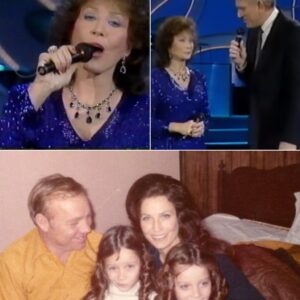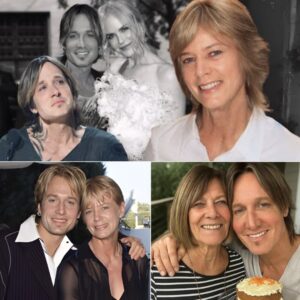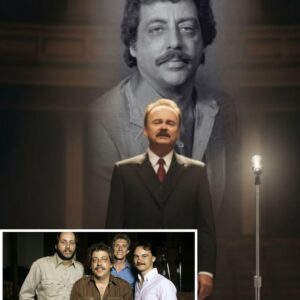What began as a seemingly routine television interview has erupted into one of the most talked-about legal battles in recent memory. Grammy-winning artist John Legend has filed a $50 million defamation and damages lawsuit against Fox News host Pete Hegseth and the network itself, following what his legal team describes as a “malicious, premeditated personal attack” broadcast live to millions.
The lawsuit, filed late Friday in Los Angeles Superior Court, accuses Hegseth of “knowingly spreading falsehoods, engaging in character assassination, and intentionally inflicting emotional distress” during an on-air segment that has since gone viral across social media. The clip, viewed more than 20 million times in 24 hours, shows Hegseth delivering a fiery tirade against Legend’s activism and political advocacy — remarks that Legend’s team calls “defamatory, racially charged, and deeply damaging.”
The Moment That Sparked the Storm
The interview, originally booked as a discussion about the intersection of celebrity, politics, and the upcoming election cycle, took a sharp turn when Hegseth abruptly challenged Legend’s credibility as an activist.
“You talk about justice, John,” Hegseth said in the now-infamous clip, “but you live in a gated mansion, you fly private, and you profit from the very system you claim is broken. Isn’t that the definition of hypocrisy?”
Legend, appearing momentarily taken aback, responded with composure. “I’ve never pretended to be perfect,” he said calmly. “What I stand for are better systems — not perfect individuals.”
But Hegseth pressed harder. “No, what you stand for,” he snapped, “is attention. You sing about love while pushing division. You’re part of a culture that shames hard work, faith, and family — everything real Americans still care about.”
The segment ended abruptly as producers cut to commercial. Within hours, clips were circulating online with captions like “John Legend DESTROYED on live TV” and “Hegseth Exposes Liberal Celebrity Hypocrisy.”
But the narrative soon shifted. By the next morning, Legend’s legal team announced they were taking action.
The Lawsuit: “Not About Ego — About Accountability”
In a statement released by Legend’s attorney, Carla Mendes, the singer described the lawsuit as “a necessary stand against bullying, lies, and the toxic media culture that profits from humiliation.”
“This is not about ego,” Mendes wrote. “It’s about accountability. Mr. Legend was invited to speak as an artist and activist, and instead was ambushed, insulted, and defamed on national television. The statements made by Mr. Hegseth and broadcast by Fox were false, malicious, and designed to damage John’s reputation.”
The lawsuit cites multiple specific claims made by Hegseth, including assertions that Legend “launders money through his charity network” and “uses activism as a front for personal gain.” Mendes said those statements were “categorically false and demonstrably reckless.”
Legal analysts say the case could test the limits of defamation law as it applies to celebrities — who often face a higher burden of proof due to their public status. Still, several media law experts believe Legend’s case has merit.
“Defamation suits by public figures rarely succeed,” said Professor Dana Corbett, a media law specialist at Columbia University. “But if the plaintiff can show actual malice — that the statements were made with reckless disregard for the truth — then it’s possible. Given the broadcast’s tone and context, this case could set an important precedent.”
Reactions Across the Spectrum
The entertainment world has rallied quickly behind Legend. Fellow musicians, actors, and activists — including Chrissy Teigen, Alicia Keys, and Kerry Washington — have voiced support online, calling Legend’s response “bold” and “long overdue.”
“People think you just have to take it when you’re famous,” Teigen tweeted. “But defamation is defamation. Being on TV doesn’t make lies legal.”
Conservative commentators, however, have framed the lawsuit as an attack on free speech. “Hegseth asked tough questions,” tweeted journalist Megyn Kelly. “That’s not defamation — that’s journalism.”
Others, including several legal pundits on Fox itself, suggested the case could backfire. “Legend is walking into a buzzsaw,” said one unnamed source at the network. “He’s giving this story oxygen and inviting discovery into his private life.”
Behind the Scenes: The Politics of Celebrity Activism
John Legend, long known for his outspoken progressive views, has been a consistent voice on issues like criminal justice reform, racial equality, and voting rights. His nonprofit initiative, FREEAMERICA, advocates for prison reform and rehabilitation — causes he has championed both through philanthropy and public speaking.
Pete Hegseth, by contrast, is a conservative political commentator, Army veteran, and longtime Fox News personality with close ties to the Trump movement. His criticism of “celebrity activism” has been a recurring theme in his commentary, often framing entertainers as “elitists detached from real American values.”
Their clash, then, was not just personal — it was ideological. And in today’s hyper-polarized media climate, it became a lightning rod for a broader cultural battle.
What Comes Next
Fox News has not yet issued an official statement on the lawsuit, though sources say the network’s legal team is “reviewing the filing.” Hegseth, for his part, appeared unfazed during his weekend broadcast, telling viewers: “We won’t be intimidated. We tell the truth, and if that upsets Hollywood, so be it.”
Legend, meanwhile, has kept his public comments measured, writing on X (formerly Twitter):
“Words have power. When lies become entertainment, people get hurt. This isn’t about me — it’s about setting a standard.”
As the case moves forward, it promises to test the boundaries between media, celebrity, and accountability — and perhaps redefine the rules of engagement in an age where outrage, clicks, and credibility collide in real time.






